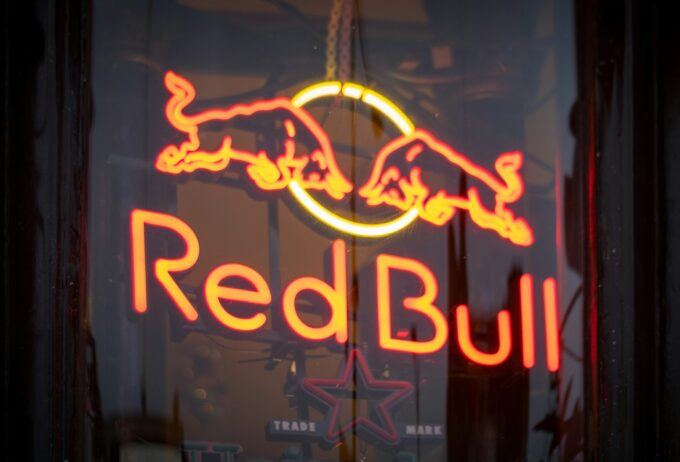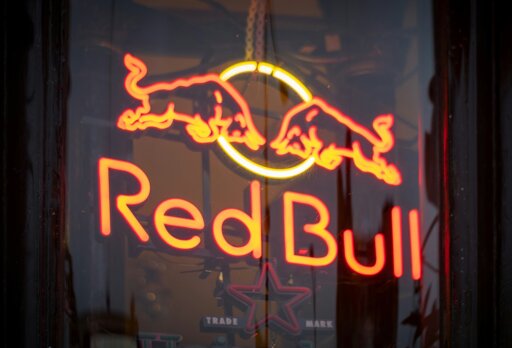
Image by Viktor Forgacs.
A professional cyclist from Spain was recently paralyzed from the chest down after a catastrophic crash at a Red Bull event. He rides for Monster — another multibillion-dollar energy-drink empire. Yet instead of these corporations covering his lifelong care, the burden has been offloaded onto the public through a fundraiser organized by the non-profit Road2Recovery. Not funded by Red Bull. Not funded by Monster. Funded by ordinary people covering the debts of billion-dollar brands that trade in risk and abandon responsibility.
This isn’t an accident of marketing; it’s how modern capitalism launders harm through empathy.
Red Bull gives you wings. The public pays when they break.
On the surface, a fundraiser looks compassionate — a community rallying around someone in crisis. But what looks like compassion is moral outsourcing. The public pays for recovery so that corporate empires can keep financing spectacle without accountability. Communities are mobilized as safety nets so billion-dollar brands never have to be.
As a professional mountain biker and critic of empire’s moral branding, I’ve learned that the arena changes, but the architecture of exploitation does not. There is a pattern to this economy: athletes risk their bodies to construct corporate mythology, and when those bodies break, the companies step aside and let the community absorb the fallout.
Red Bull and Monster have global monopolies, athlete stables, event empires, and marketing budgets larger than the GDP of small nations. Suppose they can afford to sell “fearless immortality” and build empires on the spectacle of broken bodies. In that case, they can afford full-coverage care for those whose broken bodies fuel their brand mythology. They appear to choose not to, because outsourcing the consequences is more profitable.
This pattern is not unique to sports. It is the operating system of empire.
Corporate Harm, Public Payment
When a factory collapses in Bangladesh after supplying Western fashion brands, who pays for the funerals, the prosthetics, the trauma care? Not the brands. It’s GoFundMes, mutual aid, and NGOs — the same public whose consumption was manipulated to fuel the harm.
When tech companies lay off tens of thousands after record profits, workers turn to community fridges, unemployment crowdfunding, and rent-relief drives, while shareholders cash out.
When Amazon workers die in warehouses during heat waves and tornadoes, the company sends condolences and PR teams, and the public sends groceries, grief support, and funeral funds.
The brand takes the glory; the public is handed the invoice.
The Global Scale of Moral Outsourcing
This outsourcing model scales globally.The U.S. can fund wars without limit, but when the cities it bombs are left in rubble, reconstruction is billed to the global public through the UN, NGOs, and humanitarian appeals.
After Israel levels Gaza with U.S.-backed munitions, the same governments that armed the destruction pledge humanitarian aid for reconstruction — a gesture that becomes a brand-building exercise for the very states and NGOs complicit in the harm. The people of Gaza are expected to feel grateful for the crumbs of the same empire that destroyed their schools, hospitals, and homes.
The choreography is the same:
- Empire commits the harm
- Empire brands itself as the healer
- The victims — and the global public — finance the recovery
This is extraction disguised as compassion — harm becomes spectacle, spectacle becomes sympathy, sympathy becomes profit. Empire destroys and then performs care, turning real suffering into emotional theater to harvest sympathy and convert it into moral branding and profit, bombing with one hand and fundraising with the other.
Disaster as Business Model
After climate disasters — wildfires, floods, hurricanes — governments and corporations responsible for deregulation, fossil-fuel extraction, and climate-policy failures show up with PR tweets and solidarity hashtags while the public donates bottled water and blankets. Meanwhile, private contractors, hedge funds, and developers profit from the crisis.
Communities rebuild their homes through bake sales and GoFundMes while the corporations that helped trigger the climate emergency continue extracting, untouched.
The Wreckage Isn’t Accidental — It’s a Feature
Across every industry, profit depends on keeping care scarce and accountability outsourced.
The logic is consistent across domains: in action sports, corporate brands stage high-risk spectacle to sell energy drinks and gear. When an athlete is broken, support vanishes — their suffering repackaged as inspiration and paid for by public empathy.
In war, empire funds destruction, then performs humanitarianism. The same nations that drop the bombs lead the rebuilding efforts, charging the world for aid while controlling the contracts.
In climate disasters, oil companies ignite the crisis, then reappear as donors and saviors. Communities whose homes were burned or flooded are told to be resilient — to rebuild through fundraisers while the arsonists keep drilling.
In fashion, Western corporations outsource exploitation to the Global South, where workers die in factories to make disposable clothes. When catastrophe strikes, consumers are asked to donate; the brands rebrand as ethical.
In health care, pharmaceutical and insurance conglomerates manufacture scarcity and debt, then sell access back to the same people they denied it to — at a premium — in the name of innovation.
The names change, the theater changes, but the choreography does not: power profits from destruction, then monetizes the cleanup.The spectacle is funded at scale; the casualties are privatized.
The Emotional Economy of Human Wreckage
This works because empire has learned to transmute suffering into a marketing asset. Injury becomes media content; trauma becomes a fundraising story; victims become brand-adjacent symbols of resilience. The public is guilt-tripped into paying, while corporations get credit for raising awareness.
This is not just unethical — it is colonial. It mirrors extractive economics: take the resource, abandon the land, sell the story of your benevolence.
Extreme sports, humanitarianism, war, public health, climate relief — these are not separate moral universes. They are spokes of the same wheel.
Empire writes the script, extracts the glory, sends its own victims flowers, and then forwards the invoice to the community — whether it’s an athlete’s rehabilitation, a flooded city’s rebuild, or Gaza’s reconstruction after another round of destruction funded, armed, or approved by the very states now posing as rescuers.
If we fail to name this across every arena — from mountain sports to foreign policy — we will continue to mistake flowers for justice while the empire monetizes empathy and reaps the returns.
Until we admit the wreckage was the point.
The post From Red Bull to Gaza: The Empire of Wreckage appeared first on CounterPunch.org.
From CounterPunch.org via this RSS feed


